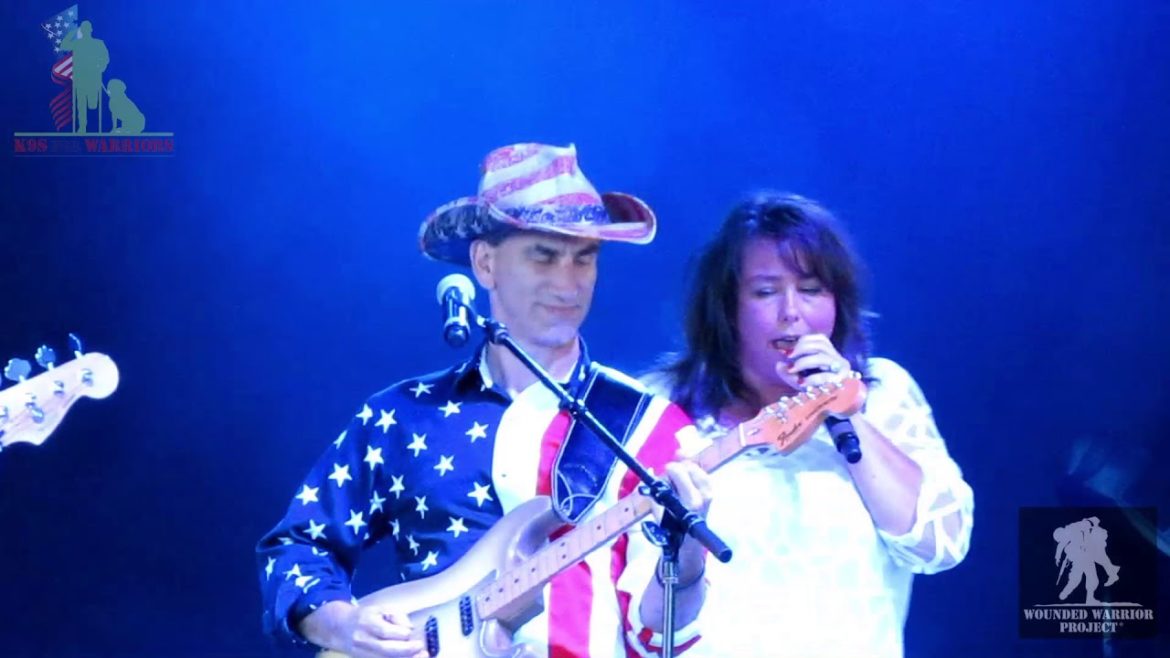Larry Goren grew up in Pikesville, and he’s spent the last 40 years playing music in the area. He’s well aware that there are plenty of cover bands in Baltimore, and good ones, too — groups that practice every week and turn out tight covers of the same classic rock songs.
So, about a year after he founded his latest band, Midnite Run, who will perform at Alive @ Five tonight along Carroll Creek, the rhythm guitarist gathered his bandmates together and asked them a simple question.
“I said, ‘OK, we’ve been together for almost a year, so what can Midnite Run do that’s going to set Midnite Run apart from everyone else?’” Goren said. “Because there are phenomenal cover bands who play all the time, and I don’t want us to just want to be one of them.”
It seemed like Goren already had an idea, but the rest of the band was immediately enthusiastic, said lead guitarist Jim Frattali. Why not center the group around a cause, and use performances as a vehicle for fundraising? Goren chose veterans, a group that seemed near and dear to both him and his bandmates. His own father was a Marine Corps veteran. Bassist Erik Kaniecki had served in the Navy. Frattali’s father and grandfather were veterans of World War II and World War I, respectively. Vocalist Aaron Fuller’s grandfather served in World War II and Korea, and his fiancée’s son served with the Marines in Afghanistan. On and on and on.
“It’s similar to something like cancer,” Frattali said. “Everyone knows someone who has cancer, and everyone knows someone who’s a veteran or a first responder.”
It was a gradual transition for the band, who started collecting money at bars and clubs before moving on to more ambitious projects. In 2014, Goren organized the group’s first Veterans Benefit Concert, held at the MECU Pavilion in downtown Baltimore’s Inner Harbor. For three of the four years, the headliner has been the progressive rock group Crack the Sky, but Jefferson Starship performed in 2017, Fuller said. The concerts eventually became so successful that Goren founded an independent nonprofit, Music Healing Heroes, which donates the proceeds to K9s For Warriors and The Baltimore Station, a residential treatment program for homeless veterans.
Goren estimates that his nonprofit has donated more than $10,000 to veterans’ groups, and the band still collects donations at smaller performances (including their upcoming Alive @ 5 concert). They’ve reached out to other charities, as well, such as the Brain Injury Association of America — an advocacy group that aims to increase quality-of-life for victims of traumatic brain injury. Conflicts in Iraq and Afghanistan have resulted in greater numbers of veterans with TBI, and the Department of Defense estimates that 22 percent of combat casualties in those areas are brain injuries. Given Goren’s avid focus on veterans, the partnership makes sense.
“My dad’s a veteran, I have friends who are veterans, my bass player’s a veteran — it’s just always been in my life,” Goren said. “But people just don’t understand how important their role is in our everyday lives. How much we owe to the military, this institution that protects us every day.”
For fellow band members, like Fratelli, Midnite Run’s philanthropic focus has also been a source of personal satisfaction. Fratelli already had plenty of respect for veterans — he grew up listening to World War II stories from his father, who landed on the beaches of Normandy just a few days after the D-Day invasion, and his mother, who grew up in Italy during the war. But it’s still a special feeling when the band raises thousands of dollars for charity, or meets veterans in person at some of their shows.
Just a few weeks ago, the band played a concert at The Baltimore Station and met a homeless veteran who said he had been suffering with emotional problems since returning home from Iraq. At one of the Veterans Benefit Concerts, Fratelli met another soldier who received a service dog through K9s for Warriors. Both men thanked the band personally for their performances.
“Ultimately, that’s the best feeling,” Fratelli said. “That’s the most rewarding part of it. It isn’t being able to say, ‘Oh, we gave money.’ What really makes you feel good is when you actually meet someone who you’re helping and they tell you their story. Or they say, ‘Thanks, we really like your music and appreciate what you’re doing.’ That’s indescribable. It makes you feel good.”

